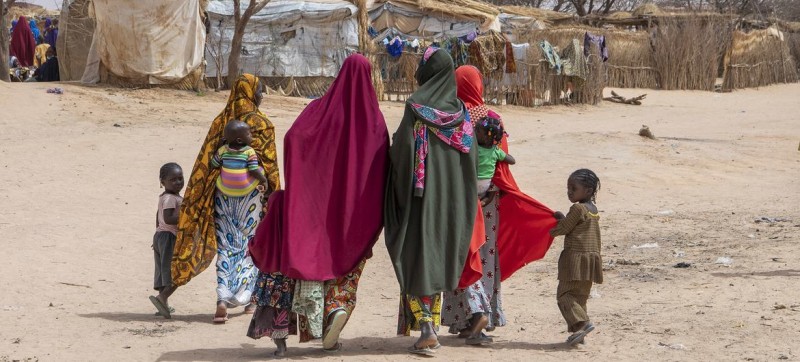
UN Photo/Eskinder Debebe A displaced family walks through Ouallam camp in Niger.
Moving from Reaction to Action: Anticipating Vulnerability Hotspots in the Sahel, says that, left unchecked, the climate emergency will further imperil Sahelian communities as devastating floods, droughts and heatwaves decimate access to water, food and livelihoods, and amplify the risk of conflict.
Tweet URL
This will ultimately force more people to flee their homes.
“In the Sahel, the climate crisis is combining with increasing instability and the low level of investments in development to create a disempowering mix that is heavily taxing Sahelian communities, with the added risk of jeopardizing the attainment of the Sustainable Development Goals,” said UN Special Coordinator for Development in the Sahel, Abdoulaye Mar Dieye.
Solutions are there
“There are solutions, focused on people’s agency and investments at scale, but they require resolute commitment and dedication from all, as well as the right data and analysis to know what is coming in order to execute proactive and impactful policy responses.”
Communities across the Sahel rely on farming and pastoralism, which are highly vulnerable to the impacts of climate change.
Food insecurity is already surging across the region, reaching emergency levels in some areas. In the long term, yields of maize, millet and sorghum are projected to decline due to climate shocks, wearing down the resilience of local populations.
Andrew Harper, Special Advisor for Climate Action with UN refugee agency UNHCR, says that “rising temperatures and extreme weather in the Sahel are worsening armed conflict, which is already destroying livelihoods, disrupting food security and driving displacement”.
Collective effort
He said only a massive boost in collective climate mitigation and adaptation, would help the region change course.
Even with ambitious climate mitigation policies, temperatures in the Sahel are predicted to rise 2.5°C by 2080. If urgent action is further delayed, they could increase by 4.3°C.
Despite the negative trends, the Sahel is endowed with abundant natural resources.
Immense potential
The region sits on one of the largest aquifers in Africa and has immense potential for renewables, including abundant solar energy capacity, and a dynamic young population – around 64 per cent of Sahelians are under 25 years old.
If bold action in climate mitigation and adaptation is imminently taken to support Sahelian countries and communities, and collaboration across the humanitarian, development and peacebuilding pillars is prioritized, there is vast potential to change the region’s trajectory, the report emphasizes.

